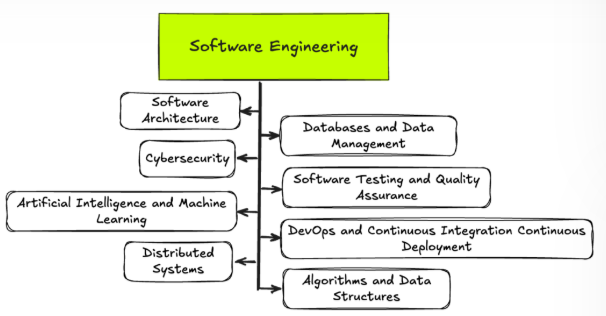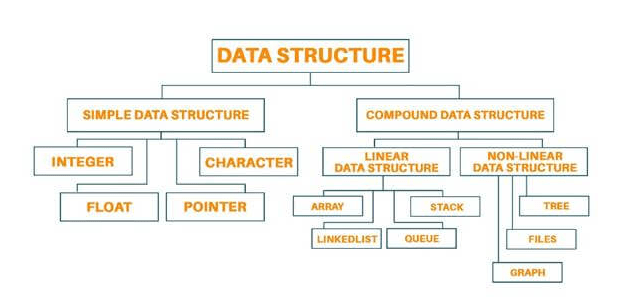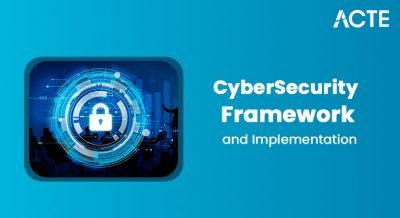
- Differences Between Software Engineering and Computer Science
- Focus Areas of Computer Science
- Core Curriculum of Software Engineering Degree
- Career Opportunities for Computer Scientists
- Core Curriculum of Computer Science Degree
- Job Roles for Software Engineering Graduates
- Focus Areas of Software Engineering
- Which Degree Is Right for You?
Differences Between Software Engineering and Computer Science
Software Engineering and Computer Science are two closely related but distinct fields. While both deal with technology and problem-solving using computers, they have different focus areas, methodologies, and career paths. Software Engineering primarily designs, develops, maintains, and tests software applications. Web Designing and Development Courses is oriented toward practical solutions, emphasizing creating scalable, efficient, and reliable software that meets user needs and business objectives. Software engineers apply engineering principles to the entire software development life cycle (SDLC), ensuring that software is developed systematically, on time, and within budget. On the other hand, computer science is a broader field that deals with the theoretical foundations of computation and algorithms. It emphasizes the theoretical understanding of computer systems, software, and hardware. Computer scientists develop new algorithms, data structures, and systems that power modern computing while studying computational theory, machine learning, artificial intelligence, and computational complexity. While Software Engineering is more application-driven and focuses on building functional systems, Computer Networks is research-driven, aiming to push the boundaries of what is possible with computing.
Focus Areas of Computer Science
Computer Science is much broader and encompasses several key areas, including, Algorithms and Data Structures The study of efficient ways to organize and process data using algorithms and structures. Artificial Intelligence Researching ways to create machines that can simulate human intelligence, including machine learning, robotics, and natural language processing. Computer Networks Understanding how data is transmitted over the jQuery vs JavaScript and other networks, and developing protocols to ensure reliable communication. Operating Systems Delving into how operating systems manage hardware resources and provide application services. Theoretical Computer Science area involves studying computational theory, including the limits of what can be computed and the complexity of algorithms.
Become a Web Development expert by enrolling in this Web Development Training today.
Core Curriculum of Software Engineering Degree
A Software Engineering degree prepares students to develop software using systematic, disciplined, and quantifiable approaches. The core curriculum of a Software Engineering degree includes:
- Programming Fundamentals: Students learn multiple programming languages (such as Java, C++, Python, etc.) and develop an understanding of writing React Native Made Simple: Beginner’s Step-by-Step Guide, efficient code.
- Software Development Life Cycle (SDLC): Emphasis is placed on understanding the different phases of software development, including requirements gathering, design, coding, testing, deployment, and maintenance.
- System Design and Architecture: Students learn to design software systems, ensuring scalability, modularity, and robustness. They also understand object-oriented design principles, architecture patterns, and system integration.
- Software Testing: Testing methodologies such as unit testing, integration testing, system testing, and acceptance testing are taught. Emphasis is placed on ensuring quality, finding bugs early in the process, and automating testing where applicable.
- Project Management and Methodologies: Students are Web Development Roadmap to Agile, Scrum, Waterfall, and other project management methodologies, which are critical for effectively managing software projects.
- Database Management: Learning about relational databases (SQL) and non-relational databases, as well as data modeling, normalization, and query optimization, is crucial for developing applications that interact with large datasets.
- Human-Computer Interaction (HCI): The curriculum includes designing intuitive and user-friendly user interfaces, considering factors like accessibility and usability.
- Software Maintenance: Students learn about maintaining and updating software systems to keep them functional and relevant as software evolves.
- Discrete Mathematics: This subject provides the mathematical foundations for Computer Networks, including logic, set theory, combinatorics, graph theory, and number theory, which are essential for understanding algorithms, programming, and computational complexity.
- Algorithms and Data Structures: A deep dive into algorithms (searching, sorting, graph algorithms, dynamic programming, etc.) and data structures (arrays, linked lists, trees, hash tables, etc.) is central to any Computer Science degree.
- Computer Architecture: Students learn how computers work at a hardware level, including the CPU, memory, input/output systems, and the relationship between hardware and software.
- Operating Systems: This includes understanding how modern operating systems manage resources such as memory, processes, file systems, and security.
- Theory of Computation: Django vs Node.js area explores the theoretical limits of computation, including concepts like Turing machines, computational complexity, and the P vs. NP problem.
- Artificial Intelligence and Machine Learning: Topics in AI cover algorithms that simulate intelligent behavior, including machine learning, neural networks, natural language processing, and robotics.
- Networks and Security: This focuses on how computer networks operate, including protocols, data transmission, encryption, and network security measures.
- Software Engineering and Development: While Computer Science has a more theoretical approach, students also learn software development practices, including object-oriented programming, testing, and debugging.
- Software Developer/Engineer: Software developers write, test, and maintain code for applications, systems, and websites. Downloading Node Js and NPM work closely with designers and project managers to create functional software solutions.
- Systems Architect: Systems architects design complex software systems, ensuring all components work together efficiently. They make high-level decisions about the system’s structure, components, and data flow.
- Quality Assurance (QA) Engineer: QA engineers focus on testing software to identify bugs, ensure it meets specifications, and maintain quality standards. They may use automated testing tools and work in various stages of development.
- DevOps Engineer: DevOps engineers work to bridge the gap between development and IT operations. They automate infrastructure deployment, monitoring, and configuration management to streamline software delivery.
- UI/UX Designer: While more specialized, some software engineering graduates focus on creating the user interface and application experience, ensuring that software is functional and user-friendly.
- Software Project Manager: These professionals manage teams of software engineers and ensure that projects are completed on time and within budget. They coordinate efforts, manage resources, and handle client communication.

Advance your Web Development career by joining this Web Developer Certification Courses now.
Career Opportunities for Computer Scientists
Computer Scientists have a broader range of career opportunities, often in research or technical positions that shape the future of technology. Some career options include: Research Scientist Conducting research in artificial intelligence, quantum computing, and machine learning to advance technology. Data Scientist Using statistical methods and programming skills to analyze large datasets and derive actionable insights. Network Architect Designing and implementing network systems for Web Developer Certification Courses, ensuring they are secure and scalable. Cybersecurity Expert Specializing in protecting computer systems and networks from threats, attacks, and unauthorized access. AI/ML Researcher Working in research labs or academic settings to develop advanced AI models and algorithms.
Core Curriculum of Computer Science Degree
A Computer Science degree covers a wide range of theoretical and practical concepts related to computing. The core curriculum includes:

Start building modern websites and applications with guidance from experts—join this Web Development Course today.
Job Roles for Software Engineering Graduates
Graduates of Software Engineering programs are equipped with the skills to take on various roles that focus on the practical application of software development:
Are you getting ready for your Web Development interview? Check out our blog on Web Development Interview Questions and Answers!
Focus Areas of Software Engineering
Software Engineering has several key focus areas that directly impact the design, development, and maintenance of software systems, Software Design and Architecture Focusing on structuring code and system components to ensure scalability, maintainability, and efficiency. Software Testing and Debugging Ensuring software quality through rigorous testing, identifying bugs, and troubleshooting issues throughout the development lifecycle. Project Management involves overseeing the planning, execution, and Control Statements in Java of software projects using methodologies like Agile and Scrum. User Experience (UX) involves creating software that is intuitive, easy to navigate, and meets users’ needs. Software Maintenance Ensuring that software remains up-to-date, functional, and relevant as user needs and technologies evolve.
Which Degree Is Right for You?
Choosing between a Software Engineering and Computer Science degree depends on your career goals and interests. If you’re interested in building software systems, creating applications, and working on practical software solutions, a Software Engineering degree may be the right choice. On the other hand, a Computer Science degree could be more suitable if you enjoy problem-solving, theoretical concepts, and Web Designing Training in areas like artificial intelligence or algorithms. Ultimately, both fields offer lucrative careers with plenty of opportunities, so the decision depends on your interests and career aspirations.




